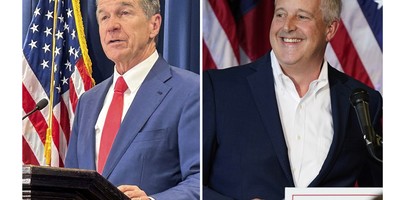Dave Brubeck wasn't just a goodwill ambassador abroad with his music and manner, but at home. No one who ever met him left without a good feeling -- and a good story. Here's one:
It was long ago when she was a bright girl from deep in the heart of Texas, but every night thanks to the miracle of AM radio, she could hear broadcasts from across the country, and now and then a different kind of music would burst through the static. Was it on KMOX out of St. Louis or WWL in New Orleens-Land-of-Dreams that she first heard the Dave Brubeck Quartet?
Anyway, her protective father insisted the young lady give his alma mater at Austin a try -- he'd been a drum major there circa 1925 -- before heading up East to Smith. That's where she heard that Dave Brubeck and his band were going to appear in Dallas. And had to go.
Forbidden to take her little roadster beyond the Austin city limits, she rode a Greyhound to Dallas to make the show, arriving hours early at the hall. Coming out to rehearse, Mr. Brubeck noticed her waiting back in the auditorium, signaled the young lady to come up and take a front-row seat, and made sure she was comfortably settled. So she got a concert before the concert. She thought about the concert(s) all the way back to Austin on the night bus till dawn. The memory would last a lifetime.
That's who Dave Brubeck was, on and off the stage. There was a wide-open Western way about him that was no respecter of age, class and certainly not the musical conventions of his time. He was, in short, California as it used to be: the golden future. Even if, with the news of his death last week a day short of 92, it's now the golden past.
He had this idea, Dave Brubeck did, that the sophisticated themes that informed his own music -- contrapuntal, cool, sure but somehow tentative, like all great explorations -- would intrigue everybody else, too. His recording company tried to tell him his stuff wouldn't go over in This Day and Age, which was the day and age of the three-minute pop single.
Recommended
Progressive jazz, his producers tried to explain, was becoming just a niche occupied by hobbyists and nostalgists. Nobody else was much interested, and they certainly wouldn't be drawn to his new take on it, with that fifth beat he added to the standard 4/4 measure of American jazz.
Oh, he might be popular on the San Francisco jazz circuit, but this was the real world, man. Nevertheless, he insisted and, what th' heck, he'd been a loyal client, and so they indulged him and let him record his little number.
"Time Out" would become the first American jazz album to sell a million copies. For once, contrary to Mr. Mencken, it had paid to over-estimate the taste of the American public. To this day, "Time Out," with its signature track, "Take Five," stands alongside Miles Davis' "Kind of Blue" as American music's equivalent of Europe's classical symphonies, our own Bach and Mozart. It would take its place next to Gershwin's greatest hits as part of the country's musical legacy.
. .
Dave Brubeck proved the perfect choice when Dwight Eisenhower was looking for someone to win hearts and minds in the Cold War. That president was no musician, but having liberated a continent, and ended another war in Asia (on the Korean peninsula), he was determined to keep the Cold War safely cold, and win it at the same time. What better way to do both than enlist the distinctively American music -- jazz -- in the effort? And the distinctly American musician who had revived and refined jazz in his time, making it popular once again? It was the perfect way to let freedom ring all around the Iron Curtain, and remind the world of the dull gray slave empire that lurked behind it.
To quote Mr. Brubeck's long-time manager, Russell Gloyd: "Eisenhower wanted to take the best of America and do a peripheral tour of the Soviet Union." And so the Dave Brubeck Quartet would embark on a world tour in 1958 that took it to Poland, Turkey, India, Pakistan (East and West), Sri Lanka, Afghanistan, Iran and Iraq. Freedom rang around the globe. Music can say things no speech can.
Much the same happened in 1988, when Brubeck performed for Ronald Reagan and Mikhail Gorbachev at their summit in Moscow. These cultural exchanges were a win-win for America, a sure lose-lose for the Soviets. For their best artists (Rostropovich and Baryshnikov --ah, the young Baryshnikov!) would soon defect while ours would make freedom sound irresistible. Just as it does in Dave Brubeck's music -- with its fine, always new balance between order and liberty. Not unlike that of the U.S. Constitution.

























Join the conversation as a VIP Member